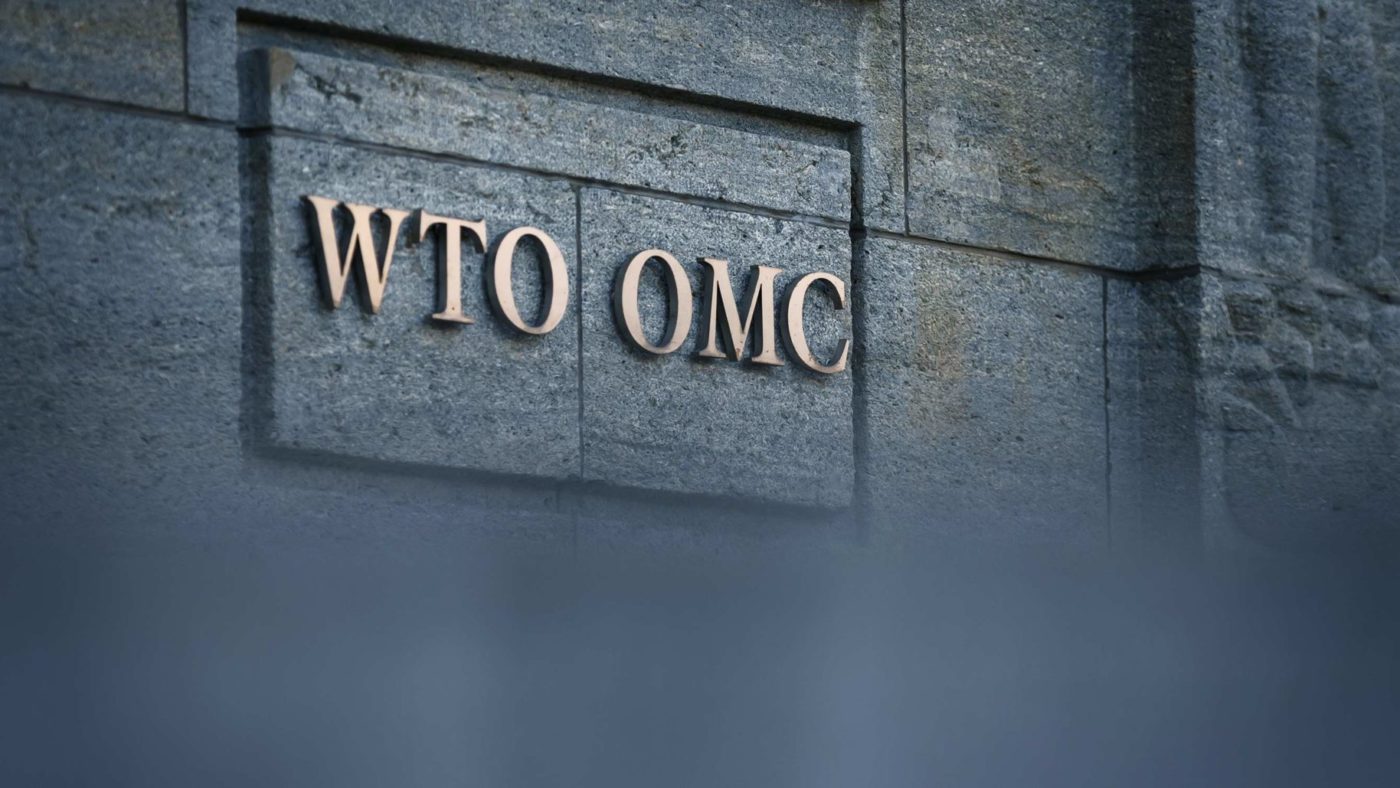As the World Trade Organization progresses through its current leadership selection process, a major stock take and reality check is required, for all is not well in the trading system. Global trade was contracting by the fourth quarter of 2019 even before the Covid pandemic struck.
We need both practical changes in the organisation itself and the recommitment to the principles of free trade and comparative advantage which have seen us help take more than 1 billion people out of extreme poverty in the last generation. One of my political heroes, President Reagan, put it succinctly back in 1986: “Our trade policy rests firmly on the foundation of free and open markets. I recognize … the inescapable conclusion that all of history has taught: The freer the flow of world trade, the stronger the tides of human progress and peace among nations.”
Those sentiments are just as valid today and would benefit from greater dissemination and amplification. It was the Reagan and Bush administrations that had the vision to embark on the Uruguay Round, and make the political compromises necessary to drive it towards a conclusion, a process that gave rise to the creation of the WTO itself. Yet the organisation faces serious challenges, after almost 25 years of failing to achieve any meaningful trade liberalisation with the exception of the Trade Facilitation Agreement in 2017, which almost no one could oppose.
The thoughtful and experienced USTR, Ambassador Robert Lighthizer, recently set out his views on WTO reform. His remarks were interpreted by many, as I believe they should have been, as an olive branch to other WTO members. He said, in effect, that the US was committed to the multilateral trading system based on the key element of MFN (most-favoured-nation) status but that a number of essential reforms needed to be enacted, especially relating to the dispute resolution system. It is this element of the WTO that is seen by many members, especially smaller states, as the main value-added component that WTO membership confers, as it allows all states to be treated equitably according to a common set of rules.
Yet the US is not alone in believing that the current system is deeply flawed in two main areas. The first is that resolution of disputes takes far too long. If a member country believes that it can gain a competitive advantage by breaking the rules, knowing that the system will take years to catch up with them, then there is a temptation towards bad behaviour that undermines both the discipline and ethos of the whole system.
Secondly, there is wide consensus that the Appellate Body needs reform. Appellate Body overreach undermines the discipline and efficiency of the system, making it a burden not a help to real businesses. Judgements must uphold the rights negotiated by members and not create new obligations. The work that has already been done to address the weaknesses represents a good starting point for further work.
Another issue that the WTO needs to contend with is the rise of the non-tariff barriers as a protectionist issue over the past decade. At the end of 2009, around the end of the financial crisis, only 0.7% of the imports of G20 countries were subject to new restrictive measures. By the end of 2019 this had mushroomed to 10.3%, placing regulatory and other expensive hurdles in the way of many countries attempting to trade their way out of poverty. Given that the G20 accounts for around 90% of global GDP and 80% of global trade, it is easy to see the damage that such measures can have on the aspirations and capabilities of the developing world.
A bit of environmental legislation here, consumer protection there and a bit of producer-friendly regulation on top, has gradually silted up the trading system in a way that has been been almost invisible to legislators and consumers alike. It has resulted in the perverse position that while development budgets have risen from the world’s richest countries, the parallel increase in trade barriers have diminished the ability of developing countries to access the ladder of prosperity.
The WTO needs to focus its energies on these issues and, as Ambassador Lighthizer put it “by recommitting to the principles of market reform”, beginning with next year’s ministerial conference in Kazakhstan. Here it will need to deal with the trading and economic consequences of the Covid pandemic as well as its own internal affairs. How the organisation deals with these challenges will be key to issues of prosperity and security across the globe but will also be key to its own relevance and, potentially, it’s very survival.
Click here to subscribe to our daily briefing – the best pieces from CapX and across the web.
CapX depends on the generosity of its readers. If you value what we do, please consider making a donation.


